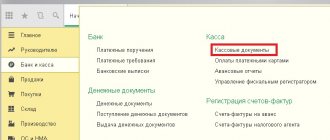Does income arise from saving on interest?
Income tax is calculated based on all income received by the organization minus expenses incurred.
The definitions of income and expenses are given in the Tax Code of the Russian Federation. Thus, income is understood as economic benefit received in cash or in kind when carrying out economic activities; this benefit can be assessed in monetary terms. If an organization receives property for free use or work has been performed (services provided) for it free of charge, then, in accordance with clause 8 of Art. 250 of the Tax Code of the Russian Federation, she has non-operating income, from the amount of which it is necessary to calculate income tax (except for the cases given in Article 251 of the Tax Code of the Russian Federation).
You can learn about what is considered non-operating income from the material: “What income is non-operating income”
But how one can determine material benefits when saving on interest is not established in Chapter 25 of the Tax Code of the Russian Federation.
Thus, it can be assumed that since economic benefits cannot be assessed in monetary terms, non-operating income as such does not arise. Consequently, the income tax base does not increase.
But when issuing an interest-free loan to an individual, he receives a material benefit from saving on interest and the legal entity is obliged to calculate and withhold personal income tax. ConsultantPlus experts explained in detail how to do this. Get trial access to the K+ system and upgrade to the Ready Solution for free.
What do officials and judges say about a taxpayer receiving an interest-free loan: is income tax paid or not? Does non-operating income arise or not?
Borrower – individual
If the borrower is not a company, but an individual (for example, an employee of the lending organization), then he may have income in the form of material benefits from savings on interest, subject to personal income tax. Why can it? Yes, because it all depends on the purpose for which the loan is issued. If a loan is issued for the purchase (construction) of housing or land, then provided that the tax inspectorate confirms the right of the citizen-borrower to use the property tax deduction, the material benefit is exempt from taxation (paragraph 5, paragraph 1, paragraph 1, Article 212 of the Tax Code of the Russian Federation ).
Since when issuing an interest-free loan to a citizen, personal income tax is paid by the lending organization as a tax agent, it is to it that the “physician” must provide the appropriate confirmation. A document confirming the right to a property tax deduction may be:
- notification in the form approved by order of the Federal Tax Service of Russia dated January 14, 2015 No. ММВ-7-11/3, issued by the tax office for submission to the employer (tax agent);
- a certificate in the form given in letter No. BS-4-11/329 dated January 15, 2016, which can be issued by the tax office for presentation to other tax agents (other than employers).
In this case, the document must contain details of the loan agreement, on the basis of which the funds spent on the purchase of real estate, in respect of which a property deduction was provided, were provided. In the absence of relevant details, such a document cannot be the basis for tax exemption. This conclusion was made, in particular, in the letter of the Ministry of Finance of the Russian Federation dated September 21, 2016 No. 03-04-07/55231. It also states that a one-time submission of a supporting document is sufficient, that is, it is not necessary to submit a notification (certificate) annually in order to be exempt from personal income tax in subsequent years when repaying the issued loan.
But if the supporting document is issued not to the borrower directly, but to the spouse, then the exemption from personal income tax can no longer be applied. Officials from the Federal Tax Service of Russia drew attention to this in their letter dated June 23, 2016 No. BS-4-11/1120.
Now let’s talk about how to determine income in the form of material benefits from saving on interest. From 2021, such income is determined on the last day of each month in which the loan (credit) agreement was valid, regardless of the date of receipt of such a loan (clause 7, clause 1, article 223 of the Tax Code of the Russian Federation). The income itself is calculated based on 2/3 of the Bank of Russia refinancing rate established on the date of receipt of income (clause 1, clause 2, article 212 of the Tax Code of the Russian Federation). In this case, personal income tax is calculated at a rate of 35 percent (clause 2 of Article 224 of the Tax Code of the Russian Federation).
If the borrower has cash income from which tax can be withheld (for example, salary), then no questions arise. If there is no such income, for example, if the loan was issued to a citizen who is not an employee, then there is no way to withhold tax. This means that the lender is limited to submitting a message to the Federal Tax Service about the impossibility of withholding tax. The message is submitted in the form of a 2-NDFL certificate indicating code “2” in the “Sign” field. In this case, the procedure for filling out a certificate with attribute “2” is similar to the procedure for filling out a certificate with attribute “1”. However, in section 3 “Income taxed at the rate of __%” you need to indicate only those incomes from which tax was not withheld.
Position of officials
Both officials of the Ministry of Finance and tax authorities are inclined to believe that the material benefit from using an interest-free loan should not be taken into account in the taxable base for income tax (letters of the Ministry of Finance of Russia dated March 23, 2017 No. 03-03-RZ/16846, dated February 9, 2015 No. 03- 03-06/1/5149, letter of the Federal Tax Service of Russia for Moscow dated December 21, 2011 No. 16-15/ [email protected] ).
This position is due to the fact that Chapter 25 of the Tax Code of the Russian Federation does not indicate how the benefit from using an interest-free loan is determined and how it is assessed.
Currently, corporate bank cards, which have a grace period for lending, are becoming increasingly popular. According to the Ministry of Finance, the material benefit from using such cards also does not lead to an increase in income tax (letter of the Ministry of Finance of Russia dated April 18, 2012 No. 03-03-10/38).
Interdependence
Based on paragraph 1 of Art. 105.1 of the Tax Code of the Russian Federation, persons are recognized as interdependent for tax purposes if the particularities of the relationship between them may influence the conditions and (or) results of transactions carried out by these persons, and (or) the economic results of the activities of these persons or the activities of the persons they represent.
To recognize the mutual dependence of persons, the influence that may be exerted due to the participation of one person in the capital of other persons is taken into account, in accordance with an agreement concluded between them, or if there is another opportunity for one person to determine the decisions made by other persons.
In accordance with paragraphs. 3 p. 2 art. 105.1 of the Tax Code of the Russian Federation, organizations are recognized as interdependent persons if the same person directly and (or) indirectly participates in these organizations and the share of such participation in each organization is more than 25%.
According to paragraph 1 of Art. 105.3 of the Tax Code of the Russian Federation, if in transactions between interdependent persons commercial or financial conditions are created or established that are different from those that would take place in transactions recognized as comparable in accordance with this section between persons who are not interdependent, then any income ( profit, revenue) that could have been received by one of these persons, but due to the specified difference were not received by him, are taken into account for tax purposes for this person.
Judges' point of view
Court decisions also confirm the position of officials that when receiving an interest-free loan, income tax is not calculated on the amount of material benefit. The courts made decisions that, by saving on interest, borrowers do not receive non-operating income from which income tax would need to be calculated (resolution of the Federal Antimonopoly Service of the North Caucasus District dated March 28, 2008 No. F08-870/08-529A in case No. A53-6008/2007-C5-14, FAS East Siberian District dated December 4, 2007 No. A19-23540/06-50-04AP-579/07-F02-8635/07 in case No. A19-23540/06-50) .
The judges refer to the fact that receiving such a loan is not a service received free of charge (resolution of the FAS Moscow District dated April 30, 2009 No. KA-A40/3318-09 in case No. A40-62908/08-4-307, FAS Northwestern District dated 10/18/2007 in case No. A56-4688/2007) and the use of money under a loan agreement without interest being charged by the lender is not the provision of services (Resolution of the Presidium of the Supreme Arbitration Court of the Russian Federation dated 08/03/2004 No. 3009/04 in case No. A55-9083/03-31) .
The arbitrators also believe that by receiving funds and not paying interest, the borrower does not increase his non-operating income, since he needs to return these funds (resolution of the Federal Antimonopoly Service of the Far Eastern District dated November 1, 2006, October 25, 2006 No. F03-A73/06-2/ 3684 in case No. A73-2447/2006-23, resolution of the Federal Antimonopoly Service of the Volga-Vyatka District dated July 28, 2005 in case No. A43-23226/2004-34-608).
Find out about the tax consequences of an interest-free loan in the Typical situation from ConsultantPlus. If you don't have access to the system, get a free trial online.
More details about the arguments given by officials and judges when making decisions can be found in the article “Do material benefits from using an interest-free loan need to be included in income?”
Unjustified tax benefit cases
Almost half of the cases concern unjustified tax benefits associated with the illegal receipt of VAT deductions (refunds) for transactions with “one-day companies.”
Interest-free loans in such disputes are the basis for tax authorities to make conclusions about:
1. The transit nature of the movement of funds. That is, the person who performed the services is only a nominal person who organizes formal document flow with the taxpayer.
2. Withdrawal of funds from the business. This conclusion is related to the previous and subsequent ones. In most cases, tax authorities pay attention to the lack of return of funds as evidence of the withdrawal of funds to third parties or interdependent entities. In addition, the non-repayment of the loan is assessed as an integral attribute of a “fly-by-night” loan.
3. Interdependencies of the parties to the transaction. It is obvious that the transfer of funds free of charge (without interest) has no economic purpose for the creditor; accordingly, such relations are not typical for independent entities.
4. Bad faith of the counterparty. The presence of facts of issuing interest-free loans is, in the eyes of the tax authorities, one of the general characteristics of the bad faith of the counterparty.
In many ways, these findings are intertwined with each other and used together. And the very presence of interest-free loans, especially those not repaid at the time of the audit, is assessed by the tax authorities as a sign of suspicion of the counterparty, other transactions with which require attention.
Results
A gratuitous loan received by an organization or individual entrepreneur does not affect the profit tax in any way for either party.
But when issuing an interest-free loan from an LLC to an individual, the latter receives a material benefit from saving on interest. And the organization acts as a tax agent and is obliged to withhold and transfer personal income tax. You can find more complete information on the topic in ConsultantPlus. Free trial access to the system for 2 days.
Can there be a loan without interest?
For many, the concepts of “loan” and “credit” are related, and therefore the words “interest-free loan” are surprising.
In fact, this is quite possible, considering that both definitions are slightly different.
- Loan is a general name for many financial transactions. It involves the transfer of a certain amount for a certain time from the lender to the borrower with subsequent return.
In this case, the loan can be interest-bearing or interest-free: the first obliges the borrower to pay some additional amount, usually interest, the second does not require this.
It is important to note: the loan can concern both finances and goods - they can also be taken as an interest-free loan, with the obligation to return them in the same form in which they were taken.
- A loan presupposes the presence of some interest, which must be paid along with the principal debt.
From the above it follows that an interest-free loan can be and is even actively used by many, but an interest-free loan, alas, does not exist, especially when it comes to banks and microloans.
Between whom is the contract concluded?
The parties to an interest-free loan agreement can be any person, regardless of whether they are borrowers or lenders. Let's look at the most common situations.
Between individuals
Loans between people who are not legal entities can be issued using a receipt and an agreement.
If a receipt is issued as the main document, then it is drawn up and signed only by the person being credited.
The document contains all the basic terms of the loan (amount, term, repayment procedure, details of the parties) and, just like the agreement, has a reference to the interest-free loan.
Sample document.
Unlike a receipt, an interest-free loan agreement between individuals is signed by both parties and drawn up on the basis of the agreements reached.
Sample receipt.
Repayment of an interest-free loan to an individual can be made in cash or by transferring funds to an account or card belonging to the lender.
Between organizations
If at least one of the parties to the loan is a legal entity, then the document must be drawn up in writing.
An interest-free loan can be issued:
- subsidiary company;
- an organization engaged in activities related to the work of the lender to maintain or produce necessary goods;
- to another enterprise.
A loan between organizations can be targeted, that is, aimed at achieving a specific goal or general purpose. Most often, targeted loans are issued to legal entities.
A sample agreement differs from a document drawn up between private individuals; it differs only in the initial part, consisting of a description of the parties to the agreement.
.
Between an individual and a legal entity
Between an individual and an organization, loan agreements are drawn up in writing.
If the lender is a person and the borrower is a company, then the interest-free loan agreement is drawn up in the following form.
In the opposite situation, that is, the person being loaned is a person, and the lender is an organization, the interest-free loan agreement will look like the following example.
There are often situations in which an individual entrepreneur gives an interest-free loan to an LLC.
Between individual entrepreneurs
According to Russian legislation, individual entrepreneurs are not legal entities, therefore, all transactions between individual entrepreneurs are formalized according to the rules inherent to individuals.
Example document.
Between the founder and the organization
The most common form of interest-free loan is a transaction concluded between the founder of the company and the organization itself. Moreover, both in the indicated form and in the opposite form.
Interest-free loans from the founder can be issued for any purpose. Payment of debt to the founder of the enterprise can be made directly with money, produced goods or other property of the enterprise. The payment method is established by the contract.
Any organization can receive a long-term interest-free loan from the founder or a short-term one. The moment of return of the amount of money is specified in the contract.
The peculiarity of the loan is that on the one hand the organization represented by the director can act, and on the other the director himself, that is, the same person signs the agreement twice.
Example document.
When issuing a loan to the founder, the consent of the board of directors of the enterprise is additionally required. Such a loan can be issued for absolutely any purpose, but, as a rule, not related to the activities of the organization.
A sample document can be downloaded from this link.
Between employee and organization
Any enterprise has the right to enter into loan agreements not only with the founders, but also with ordinary employees.
A person working for a company can receive an interest-free loan from it for training, treatment, recreation, and so on. To issue a loan, the consent of all co-owners of the enterprise or organization will be required.
Most often, interest-free loans to an employee are targeted, that is, they are aimed at achieving a specific goal specified in the document.
An example document is located at the link.
If an organization needs to get a loan from an employee, the agreement is drawn up as a transaction between a private investor and the enterprise. A sample document has already been indicated in this article.
Read about private secured loans in the article: private secured loans. Companies that provide urgent loans up to 30,000 rubles without visiting a bank or office on a card are in the table.







